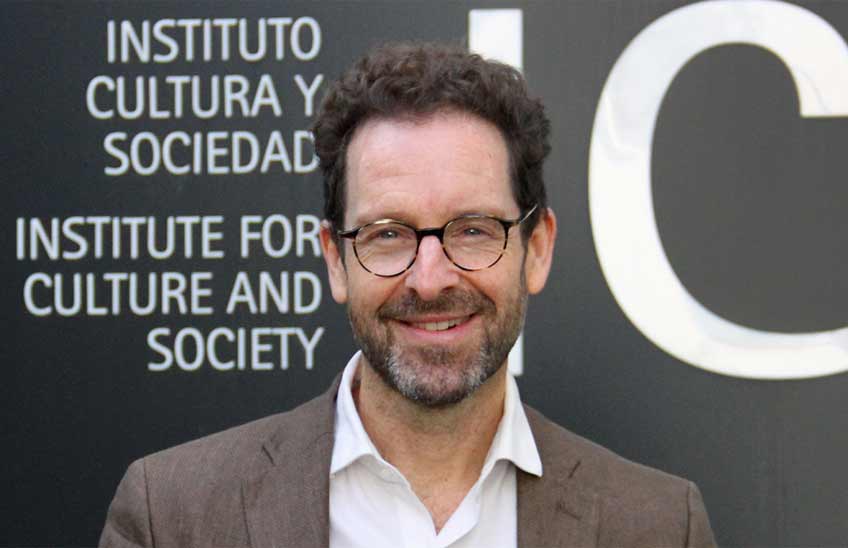An ICS musicologist premieres unpublished works by a Baroque composer from Navarre at the Xacobeo
Albert Recasens has made an exhaustive musicological study of José de Baquedano (1642-1711) and conducts a concert in the Cathedral of Santiago with vocal pieces in Latin in front of the ensemble "La Grande Chapelle".

FotoIsabel Solana/<br>Albert Recasens
21 | 06 | 2021
Albert Recasens, researcher of the Institute for Culture and Society (ICS) of the University of Navarra, will offer on June 24 a concert in the Cathedral of Santiago de Compostela in front of his ensemble La Grande Chapelle, in the framework of the Xacobeo 2021-22. Unpublished works by the musician from Puente la Reina José de Baquedano (1642-1711), teacher, composer and famous performer of the chapel of the cathedral, will be performed. The work of recovery is framed in the project of research that Recasens develops in the ICS.
The program will include a selection of Baquedano's Latin works board member , with motets, psalms and lamentations. Albert Recasens has carried out a rigorous research, the parallel musicological study and the coordination of the transcription of the works, following the scientific methodology he has applied in previous recoveries of other Spanish composers of the 16th, 17th and 18th centuries.
José de Baquedano was born in Puente la Reina, an enclave on the Camino de Santiago. As a child, he began his career there training and later sought work as a singer in Bilbao, San Sebastian, Vitoria and Segovia. Later he moved to Madrid, where he began to consolidate his prestige. Due to his merits, the chapter of the Cathedral of Santiago proposed him as chapel master in 1680, where he served until 1710.
Symbiosis of a modern style and traditional polyphonic language
"Baquedano's production offers, as in other composers of his generation, an admirable symbiosis of modern style - with Italianate melodic twists, daring harmony, chromaticism or interventions for soloists - and the traditional polyphonic language that prevailed in the Hispanic ecclesiastical centers," stressed the musicologist and researcher of the ICS. "It is at the vanguard of the time -he added-, since it develops the most modern baroque style and gives maximum importance to the expression of the text".
Recasens pointed out that the figure of Baquedano has aroused the interest of musicologists and performers since the 50s of the twentieth century: "He has had pioneering recoveries promoted by institutions such as the Cathedral of Santiago or the University of Santiago, sponsored by public administrations". However, he pointed out that the part of his work that has been recorded "is reduced and is not proportional to the importance and artistic quality of the preserved production".
According to the musicologist, among the works that will be performed is the recovery of the psalm Miserere for ten voices, "following the interpretative internship of the time and the composer's own annotations". He pointed out that this piece was performed on Holy Thursday, Friday and Holy Saturday "to several choirs, spread throughout the church".
He also pointed out that the concert on the 24th will have the same musicians as the original compositions and will include the vihuelas de arco (also called violas de gamba) that the composer foresaw for one of the lamentations of Maundy Thursday, the Iod. Manum suam.
Both the concert in the cathedral and the subsequent discographic edition have counted with the intellectualadvisory service of the Centro de programs of study Europa Hispánica (CEEH). The recording of the album will take place at the end of June in Portugal.
